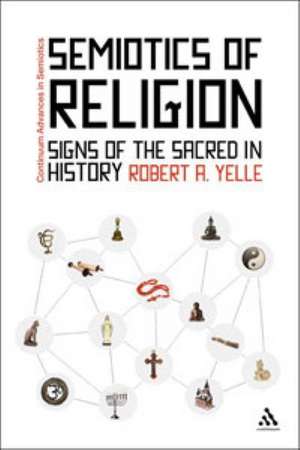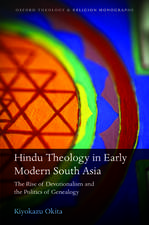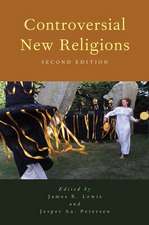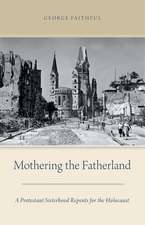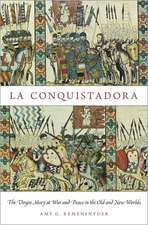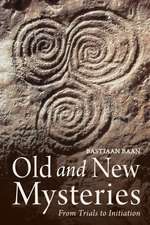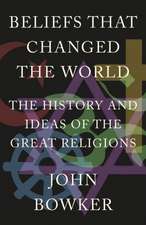Semiotics of Religion: Signs of the Sacred in History: Bloomsbury Advances in Semiotics
Autor Professor Robert A. Yelleen Limba Engleză Hardback – 7 noi 2012
| Toate formatele și edițiile | Preț | Express |
|---|---|---|
| Paperback (1) | 298.74 lei 6-8 săpt. | |
| Bloomsbury Publishing – 7 noi 2012 | 298.74 lei 6-8 săpt. | |
| Hardback (1) | 1007.62 lei 6-8 săpt. | |
| Bloomsbury Publishing – 7 noi 2012 | 1007.62 lei 6-8 săpt. |
Din seria Bloomsbury Advances in Semiotics
- 14%
 Preț: 179.13 lei
Preț: 179.13 lei - 22%
 Preț: 271.40 lei
Preț: 271.40 lei - 22%
 Preț: 256.85 lei
Preț: 256.85 lei -
 Preț: 173.71 lei
Preț: 173.71 lei - 18%
 Preț: 238.84 lei
Preț: 238.84 lei - 30%
 Preț: 568.71 lei
Preț: 568.71 lei - 14%
 Preț: 171.77 lei
Preț: 171.77 lei - 14%
 Preț: 1006.79 lei
Preț: 1006.79 lei - 23%
 Preț: 190.96 lei
Preț: 190.96 lei - 23%
 Preț: 198.05 lei
Preț: 198.05 lei - 13%
 Preț: 231.16 lei
Preț: 231.16 lei -
 Preț: 198.22 lei
Preț: 198.22 lei - 13%
 Preț: 232.07 lei
Preț: 232.07 lei - 13%
 Preț: 237.28 lei
Preț: 237.28 lei - 13%
 Preț: 258.42 lei
Preț: 258.42 lei - 24%
 Preț: 190.16 lei
Preț: 190.16 lei - 8%
 Preț: 299.19 lei
Preț: 299.19 lei - 23%
 Preț: 192.30 lei
Preț: 192.30 lei - 18%
 Preț: 306.47 lei
Preț: 306.47 lei - 22%
 Preț: 257.32 lei
Preț: 257.32 lei - 22%
 Preț: 223.58 lei
Preț: 223.58 lei - 30%
 Preț: 773.39 lei
Preț: 773.39 lei - 22%
 Preț: 226.79 lei
Preț: 226.79 lei - 22%
 Preț: 238.40 lei
Preț: 238.40 lei - 23%
 Preț: 192.73 lei
Preț: 192.73 lei - 22%
 Preț: 237.84 lei
Preț: 237.84 lei - 8%
 Preț: 131.83 lei
Preț: 131.83 lei - 18%
 Preț: 305.53 lei
Preț: 305.53 lei
Preț: 1007.62 lei
Preț vechi: 1292.70 lei
-22% Nou
Puncte Express: 1511
Preț estimativ în valută:
192.80€ • 201.85$ • 159.54£
192.80€ • 201.85$ • 159.54£
Carte tipărită la comandă
Livrare economică 07-21 aprilie
Preluare comenzi: 021 569.72.76
Specificații
ISBN-13: 9781441142825
ISBN-10: 1441142827
Pagini: 256
Dimensiuni: 156 x 234 x 20 mm
Greutate: 0.52 kg
Editura: Bloomsbury Publishing
Colecția Bloomsbury Academic
Seria Bloomsbury Advances in Semiotics
Locul publicării:London, United Kingdom
ISBN-10: 1441142827
Pagini: 256
Dimensiuni: 156 x 234 x 20 mm
Greutate: 0.52 kg
Editura: Bloomsbury Publishing
Colecția Bloomsbury Academic
Seria Bloomsbury Advances in Semiotics
Locul publicării:London, United Kingdom
Caracteristici
Explains many of the characteristic features of religious symbolism from the context of modern semiotics.
Notă biografică
Robert A. Yelle is Assistant Professor at the Department of History and the Helen Hardin Honors Program, University of Memphis, USA.
Cuprins
1. Introduction \ 2. Distinctive Features of Religious Symbolism and Language \ 3. Natural and Artificial Languages \ 4. The Semiotics of Ritual Form \ 5. The Attack on Semiotic Form \ 6. Protestant Literalism and Print Culture \ 7. Signs of Salvation \ Bibliography \ Index
Recenzii
A deep and engaging book sure to pique the interests of researchers in both semiotics and religion. Summing Up: Highly recommended. Graduate students, faculty.
As Robert Yelle compellingly argues in his compact, meaty monograph, a semiotic approach to religion (magic, ritual, myth) requires attention to both semiotic form and semiotic ideology - the poetics of rhyme and repetition, but equally the underlying nominalist ideology that naming invokes the ghost ... [T]he cogent ways in which he pulls together countless familiar piecemeal insights and well-known cases and debates in the anthropology of religion make his book worthwhile reading for linguistic anthropologists ... In sum, this groundbreaking interdisciplinary work provides a compelling argument for the tools of our trade by someone firmly situated in a different discipline.
This important work takes up the almost forgotten task of advancing the study of religion to a place of deeper comprehension in which the tasks of comparison and broad categorical analysis are possible. The means of advance, as the title indicates, is semiotics ... [T]his [is a] carefully plotted argument, making Semiotics of Religion a highly recommended work of theory and method.
In [Yelle's] book he suggests a more radical reorientation for the study of religious phenomena that shifts focus from attempts to uncover the underlying cosmology of religious and magical rituals - that is, the particular 'semantic or symbolic' meaning of such practices - to an approach that gives closer attention to the semiotics of ritual repetition and form ... Yelle's willingness ... to take religious discourse on its own terms as well as his explanations of the complex language ideologies at work in South Asian religious ritual and practice provide a valuable contribution to both the study of language and the study of religion.
Students of semiotics, semiotic anthropology, cultural anthropology, religious studies, anthropology of religion, and especially semiotics of religion, have long waited for a publication of this kind ... [This book] revitaliz[es] the domain of semiotics, and in particular that of the semiotics of religion, with new themes, insights, sensibility and, last but not least, a new style ... Another merit of Yelle's book, perhaps the greatest one, is to demonstrate with lucidity and efficacy that the semiotic ideologies that underpin religious traditions did not vanish in the era of supposed secularization but mutated, instead, into often neglected aspects of secular, modern, and even post-modern semiotic ideologies.
[B]road in scope and ambitious. ... According to Yelle's compelling argument, religions develop their own poetics that promote the use of signs and languages as non-arbitrary and motivated entities; as such, religious uses are related to poetry and performance, rather than history or philosophy. ... Yelle's book is a landmark in semiotics and religious studies, and will be the basis of many research developments for several years.
[Yelle's] extremely interesting engagement with ritual language with regard to magic in particular provides a different reading of magic, one that takes for granted its rationality and takes seriously its discursive poetics as an aspect of its efficacy and not an aspect of its being 'science gone wrong.' In this kind of approach, Yelle provides a fresh and insightful reading of magic, something quite unique in the study of systems of belief and practice.
Robert A. Yelle's Semiotics of Religion lays important groundwork for a revival of semiotics in the study of religion. In an admirably clear and straightforward manner, he examines a number of semiotic ideologies and their implications for ritual actions and historical interpretation. ... Yelle's account of Protestant literalism, with its entailments especially in the sphere of law, is remarkably clear and to the point. Despite an inordinately large corpus of material to grapple with, Yelle succeeds admirably in articulating the implications of 'plain speech' - and the rejection of 'vain repetitions' - within the 16th- and 17th-century moment.
This book is vast in scope, deep in implications, and admirably clear and forthright in exposition.The study of religion has needed a work of this kind, which brings together several research traditions and pushes the resulting synthesis in new directions. The result is an agenda-setting project of huge ambition.
Semiotics of Religion displays sensational semiotic sensitivity in analyzing the practical poetics of performance - the 'pragmatics' of performativity - of various expressions of the religious life.From this perspective and with great erudition, Yelle then engages the four-hundred-year-long European Enlightenment drive both stipulatively and interpretatively to 'semanticize' religious practice - as also language itself - in an ideological project of containment that has been central to institutionalizing 'disenchanted modernity.' In this enchanting book Yelle demonstrates a more inclusive semiotics of religion.
As Robert Yelle compellingly argues in his compact, meaty monograph, a semiotic approach to religion (magic, ritual, myth) requires attention to both semiotic form and semiotic ideology - the poetics of rhyme and repetition, but equally the underlying nominalist ideology that naming invokes the ghost ... [T]he cogent ways in which he pulls together countless familiar piecemeal insights and well-known cases and debates in the anthropology of religion make his book worthwhile reading for linguistic anthropologists ... In sum, this groundbreaking interdisciplinary work provides a compelling argument for the tools of our trade by someone firmly situated in a different discipline.
This important work takes up the almost forgotten task of advancing the study of religion to a place of deeper comprehension in which the tasks of comparison and broad categorical analysis are possible. The means of advance, as the title indicates, is semiotics ... [T]his [is a] carefully plotted argument, making Semiotics of Religion a highly recommended work of theory and method.
In [Yelle's] book he suggests a more radical reorientation for the study of religious phenomena that shifts focus from attempts to uncover the underlying cosmology of religious and magical rituals - that is, the particular 'semantic or symbolic' meaning of such practices - to an approach that gives closer attention to the semiotics of ritual repetition and form ... Yelle's willingness ... to take religious discourse on its own terms as well as his explanations of the complex language ideologies at work in South Asian religious ritual and practice provide a valuable contribution to both the study of language and the study of religion.
Students of semiotics, semiotic anthropology, cultural anthropology, religious studies, anthropology of religion, and especially semiotics of religion, have long waited for a publication of this kind ... [This book] revitaliz[es] the domain of semiotics, and in particular that of the semiotics of religion, with new themes, insights, sensibility and, last but not least, a new style ... Another merit of Yelle's book, perhaps the greatest one, is to demonstrate with lucidity and efficacy that the semiotic ideologies that underpin religious traditions did not vanish in the era of supposed secularization but mutated, instead, into often neglected aspects of secular, modern, and even post-modern semiotic ideologies.
[B]road in scope and ambitious. ... According to Yelle's compelling argument, religions develop their own poetics that promote the use of signs and languages as non-arbitrary and motivated entities; as such, religious uses are related to poetry and performance, rather than history or philosophy. ... Yelle's book is a landmark in semiotics and religious studies, and will be the basis of many research developments for several years.
[Yelle's] extremely interesting engagement with ritual language with regard to magic in particular provides a different reading of magic, one that takes for granted its rationality and takes seriously its discursive poetics as an aspect of its efficacy and not an aspect of its being 'science gone wrong.' In this kind of approach, Yelle provides a fresh and insightful reading of magic, something quite unique in the study of systems of belief and practice.
Robert A. Yelle's Semiotics of Religion lays important groundwork for a revival of semiotics in the study of religion. In an admirably clear and straightforward manner, he examines a number of semiotic ideologies and their implications for ritual actions and historical interpretation. ... Yelle's account of Protestant literalism, with its entailments especially in the sphere of law, is remarkably clear and to the point. Despite an inordinately large corpus of material to grapple with, Yelle succeeds admirably in articulating the implications of 'plain speech' - and the rejection of 'vain repetitions' - within the 16th- and 17th-century moment.
This book is vast in scope, deep in implications, and admirably clear and forthright in exposition.The study of religion has needed a work of this kind, which brings together several research traditions and pushes the resulting synthesis in new directions. The result is an agenda-setting project of huge ambition.
Semiotics of Religion displays sensational semiotic sensitivity in analyzing the practical poetics of performance - the 'pragmatics' of performativity - of various expressions of the religious life.From this perspective and with great erudition, Yelle then engages the four-hundred-year-long European Enlightenment drive both stipulatively and interpretatively to 'semanticize' religious practice - as also language itself - in an ideological project of containment that has been central to institutionalizing 'disenchanted modernity.' In this enchanting book Yelle demonstrates a more inclusive semiotics of religion.
